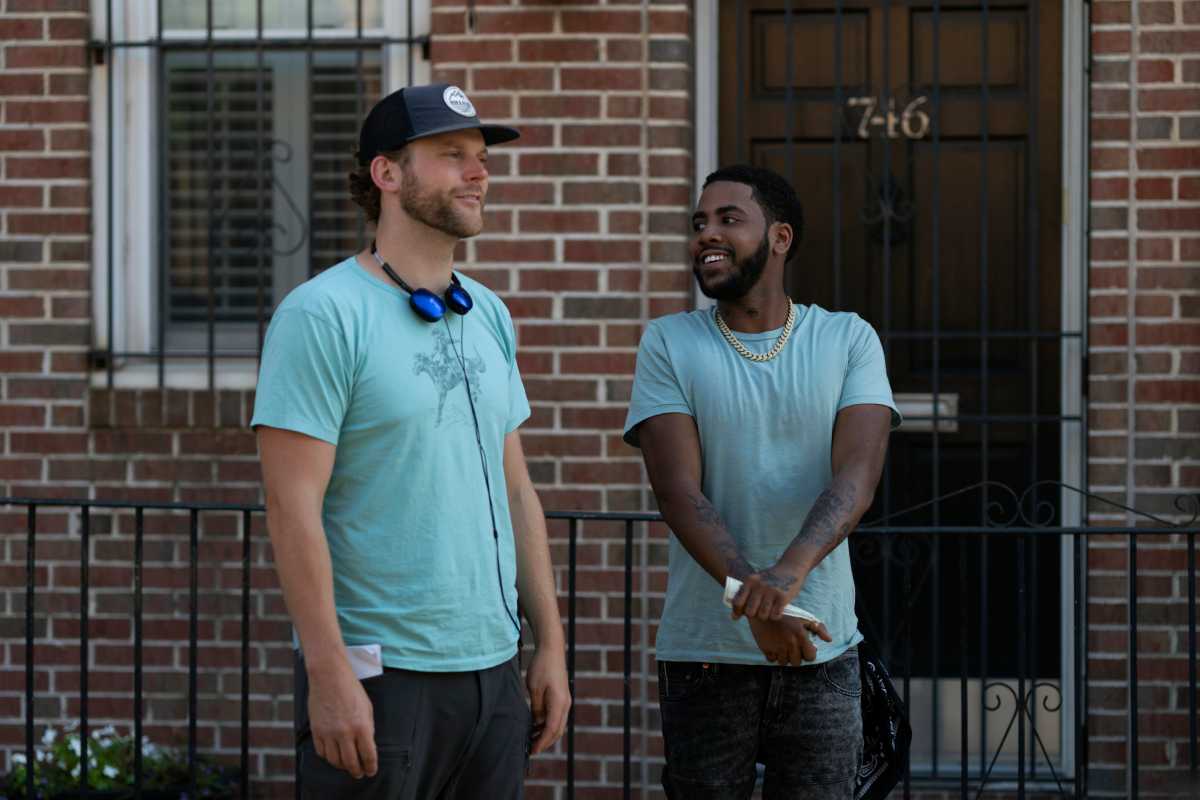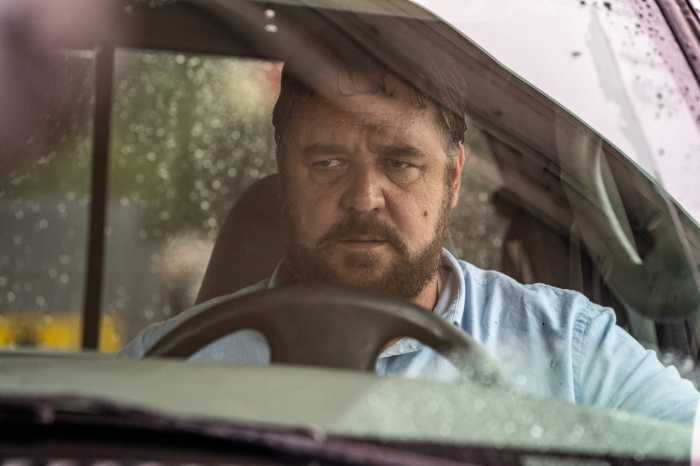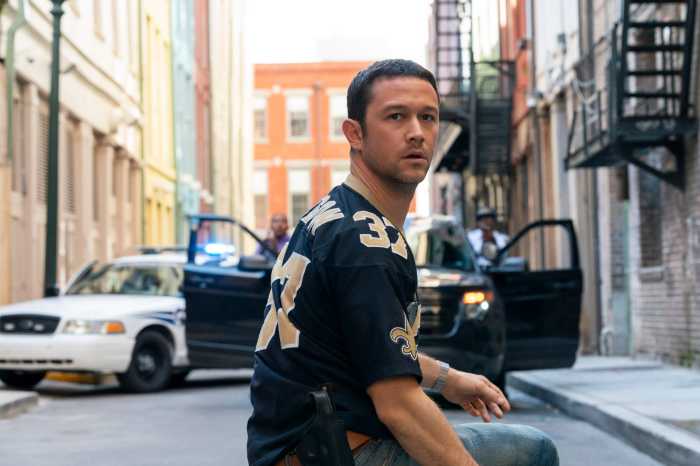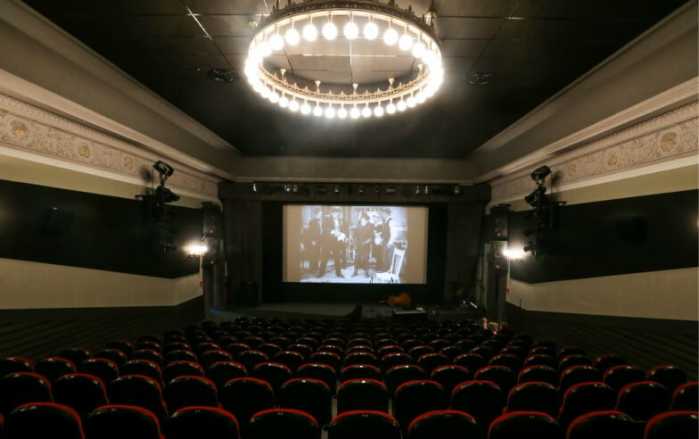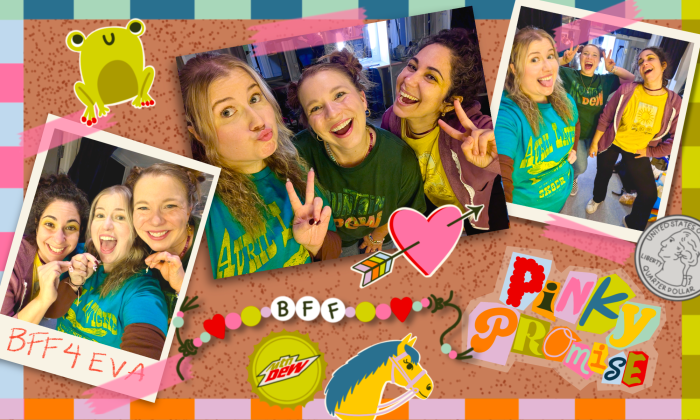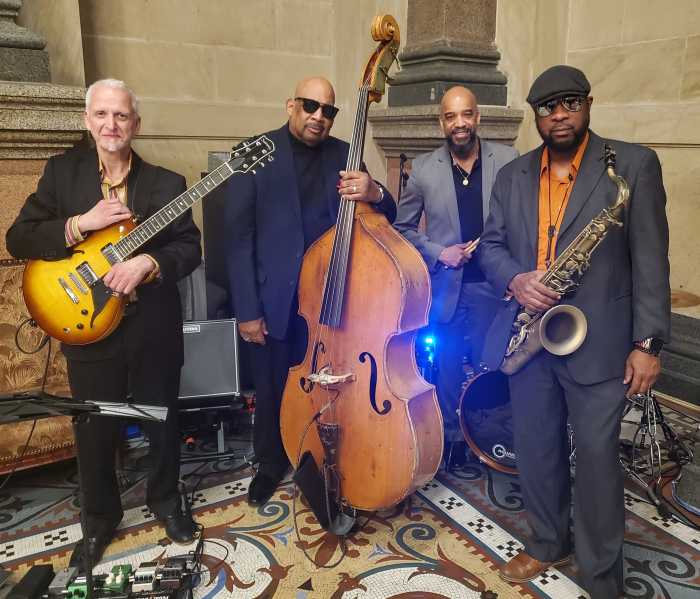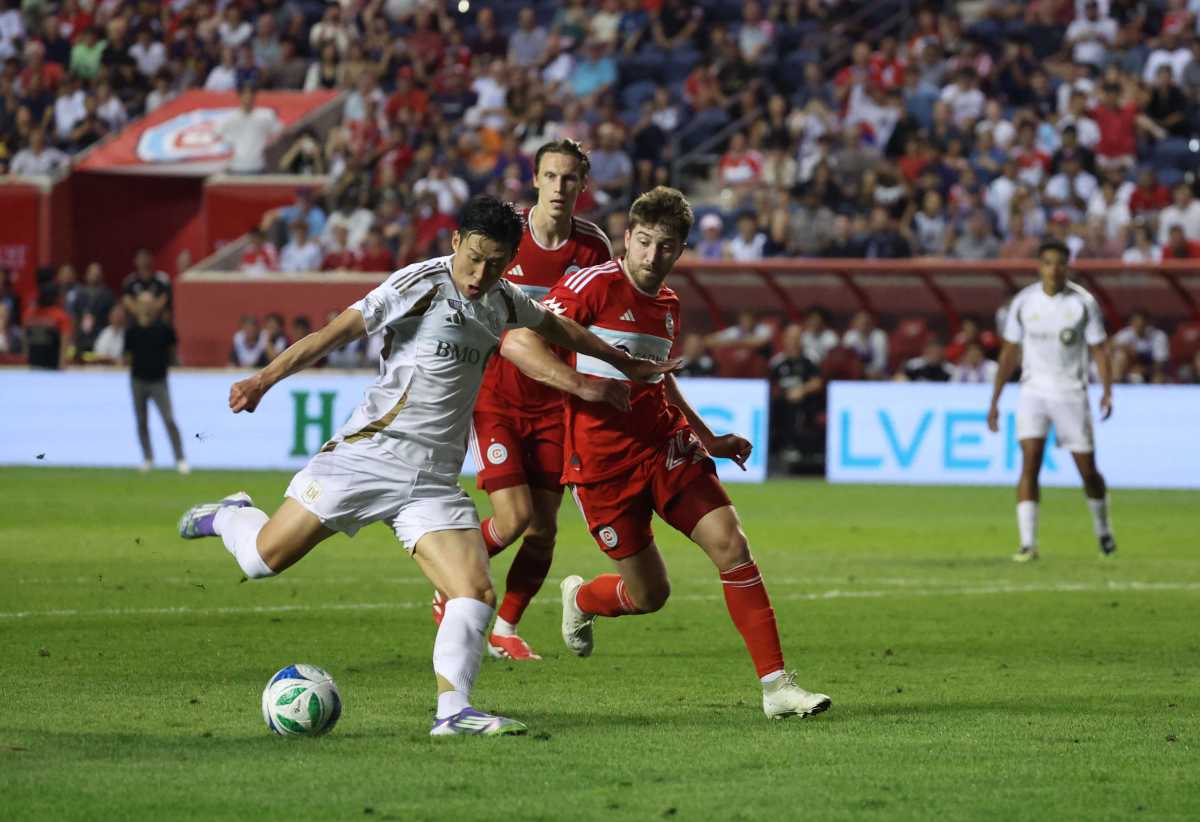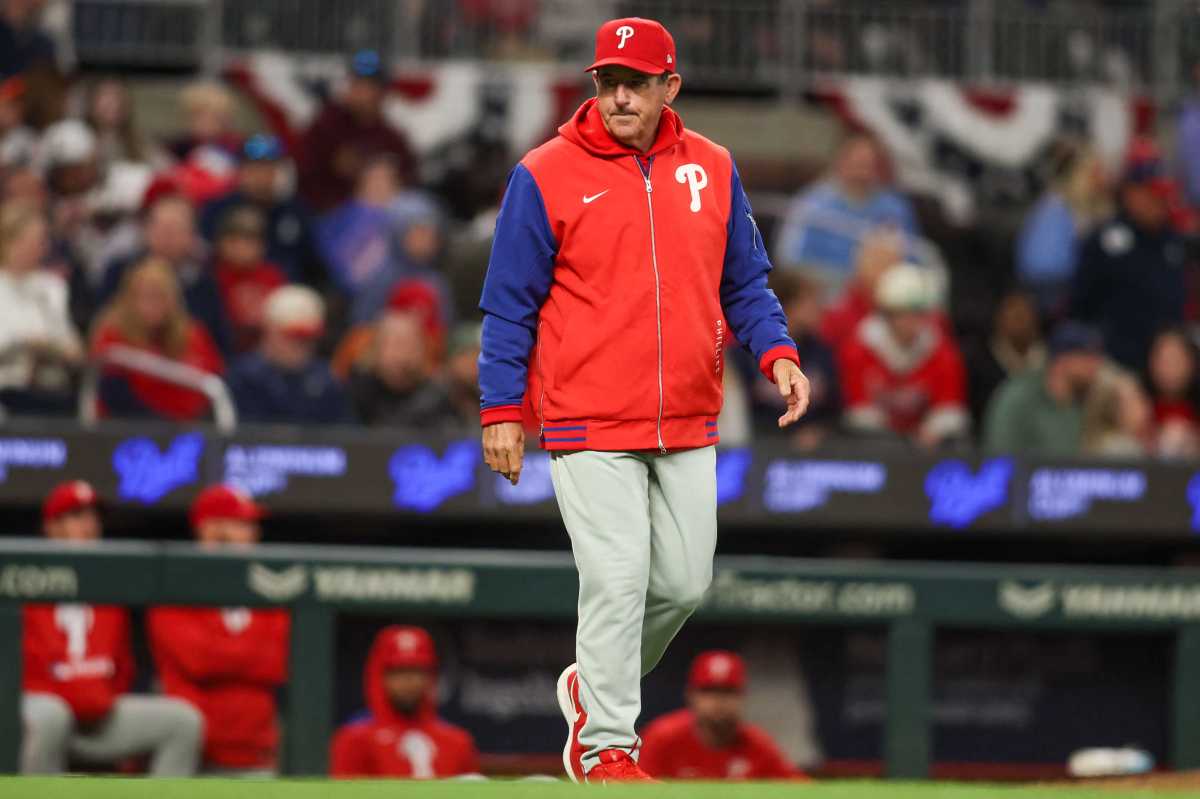Philly is a lot of things, but not many people expect this East Coast city to have a taste of the Wild West.
If you head to North Philadelphia, specifically Fletcher Street, don’t be surprised if you see horses trotting up and down the roads and the wafting smells of manure from the stables where many of these urban cowboys and cowgirls spend their time. Those horsemen, known as the Fletcher Street Riders, are exactly what drew writer/director Ricky Staub in. Staub lives in North Philly and spent time developing his production company, Neighborhood Film Company, as a unique organization that offers paid apprenticeships and career development to adults returning home from incarceration. It’s through this program that Staub met cowboy Eric Miller, and the script for ‘Concrete Cowboy’ began to form.
‘Concrete Cowboy’ follows the story of Cole (‘Stranger Things’ actor Caleb McLaughlin), who is sent to live with his father Harp (Idris Elba) for the summer following an expulsion from his school in Detroit. It’s in Philly that Cole is introduced to the city’s cowboys and girls and his life begins to change—but not without some growing pains.
Having an all-star cast of not only actors, but the Fletcher Street Riders themselves, Staub’s latest film is the epitome of a love letter to Philly, and more specifically to the Concrete Cowboys and Girls who make this untold story so rich with feeling and culture.
And to think there was a chance this incredible story may never have been told…Luckily, it was.
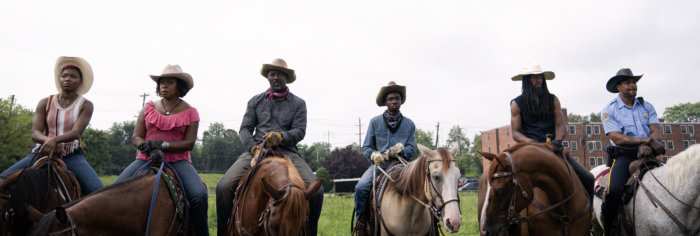
Ricky what was it about this story that compelled you to want to make a film on the Fletcher Street Riders?
Ricky Staub: For me, I was first introduced to [Fletcher Street] because my company is based in Philly. We launched in 2011 with a mission to be able to hire adults who are returning from incarceration, and the first cowboy I met was a gentlemen named Eric Miller…He had been home a week, and he told the judge that he had already purchased a horse. I found that fascinating. We struck up a friendship, and it was really his invitation [for me] into the community. From a visual standpoint, it’s very arresting to see a cowboy riding through the hood of North Philly, it’s an extraordinary visual. So, as someone who was a filmmaker, that was an immediate draw. But once I learned more about their community and why they existed, and Eric’s heart to really preserve the heritage by making a story about the culture…It just checked a lot of boxes for me and I was really excited to just try to make it.
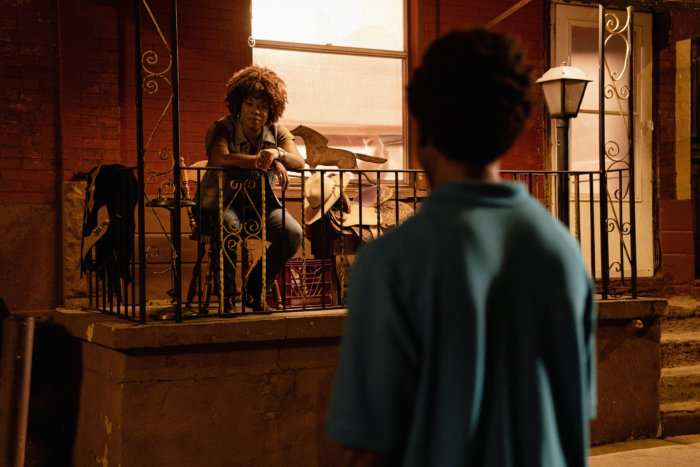
Caleb, once you heard about this story, what were your initial thoughts?
Caleb McLaughlin: Before I even read the script, I saw [Ricky’s] short film, ‘The Cage’—it blew me away. I knew that I needed to work with this guy, his work was so astounding, and when I read the script, and I knew I needed to audition and get on this project. As an actor, you look for roles to challenge you and take you to the next level, and Cole was that guy for me. The story in itself is so amazing and it’s a story that not a lot of people know about…But it’s a part of history. It’s not your average hood film or your western, it’s ‘Concrete Cowboy,’ it’s cowboys in Philadelphia and it’s the City of Philadelphia. So, I knew I wanted to hop on something that really speaks to me and something that I believe in.
Ricky, after having such a presence and being so immersed in this community, what do you think that experience brings to your role as a director in this film?
RS: I think it’s something that has been integral in even my company’s process of making ‘The Cage,’ there’s such a need for empathy and understanding and listening. The base bulk of my work as a director is listening, particularly because the short film and the feature I’ve made are about real communities. While I lived there in North Philly, I’m not from that community as a native…But it’s such an exceptional experience to be invited into a culture that’s not your own and to be able to offer a gift. I know I can direct, I know I can write, so I tell the cowboys, I want you to be able to watch this film and say that is us. Then it evolved from there. I worked on the script for two years with two cowboys, Eric Miller and Jamil Prattis, who plays Paris in the film. We went over that script so many times and then on the day we realized, well, I’m just going to put the whole community into the film. There’s just a lot of improvisation and leaning on each other and Caleb can speak to how much their voice was influenced on set. It was a pretty magnificent experience, it’s taught me a lot, and I think I will continue to take that into my filmmaking. This empathy and listening is such a beautiful part of the process for me. To be invited into other’s lives…It’s changed me forever.
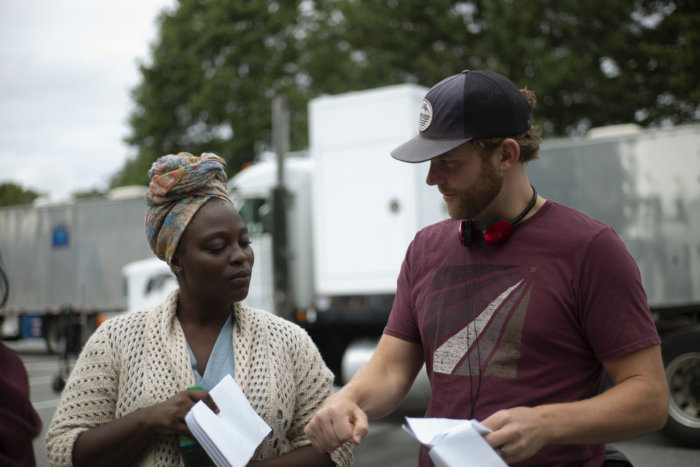
Caleb, how was it working with Fletcher Street Cowboys, and also the horses themselves?
CM: That was probably the most important part for me, just immersing myself into the community and becoming Cole. One thing Ricky always told me: I want you to learn everything you have to learn about Cole… I want you to get on the horses and train with them, because when people see this movie, I want them to see Philly and I want them to see Cole, I don’t want them to see Caleb. I think that being in Philly really helped me out a lot and working with everyone at Fletcher Street really helped me tremendously. Working with Mills and Mercedes and everyone at Fletcher Street and just seeing the stables—Everything you see in the film was there, it wasn’t props. Just taking part in the community, there was no easing it, it was we’re going to bring you into the community like you’ve been here for 30 years.
Why do you think it’s important that people hear the story of the Fletcher Street Riders?
CM: Because it’s history and it’s a part of history. It’s not a made up story. A lot of people don’t know about Fletcher Street and then there are other stables around the country that people don’t know about, but Fletcher Street in North Philadelphia especially. This city is so special, there’s so many stories in Philadelphia that you don’t know about and this is one of them. This is like a journey to a new life and a new understanding of what our stories are about and I thank Ricky for taking this time to immerse himself into the community and telling their story, and bringing them on to it.
RS: The film obviously has a message about gentrification and it’s effects. I didn’t want the film to have an agenda and paint the city as a evil empire, I really wanted people to make the decisions themselves by just inviting them into the beautiful pieces of this community as I was invited. Every stage of writing the script, I fell more and more in love with the actual people and I hope that happens when people watch the film. There are these little treasures all across the world and all across our country, and they’re not gonna provide economic stimulus like a housing unit. But they should be preserved and cherished because they are these intangible pieces of heritage inside these cities that in some ways, had we not told this story, would have been wiped out and no one would have even known.
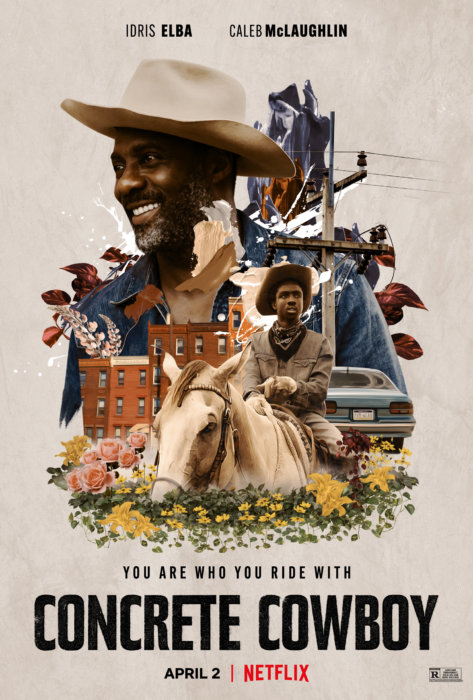
‘Concrete Cowboy’ drops on Netflix April 2.



